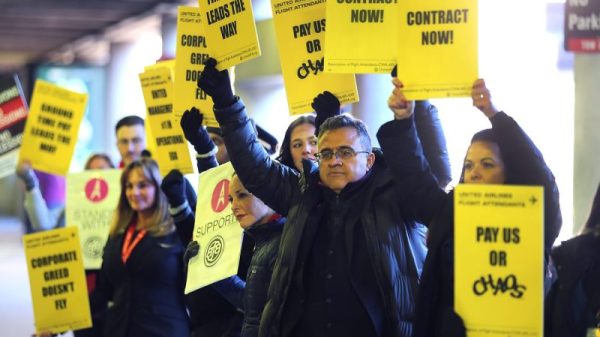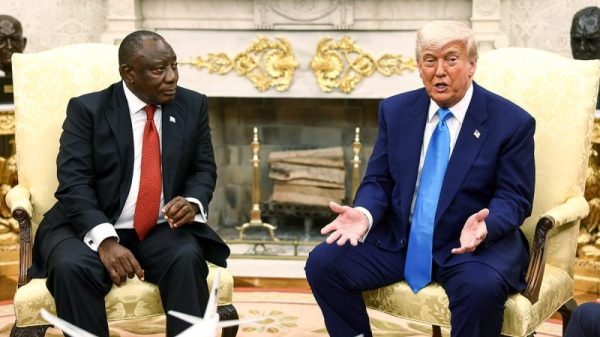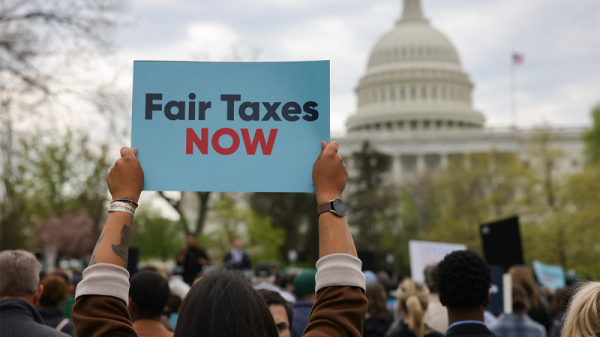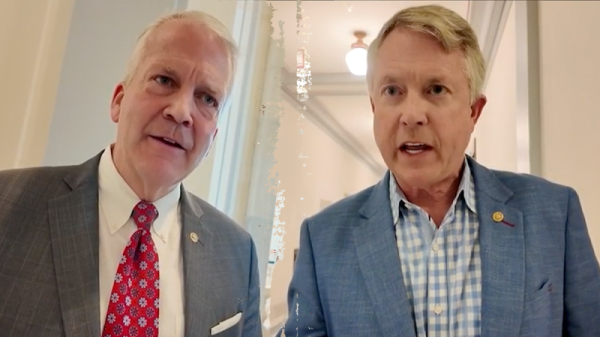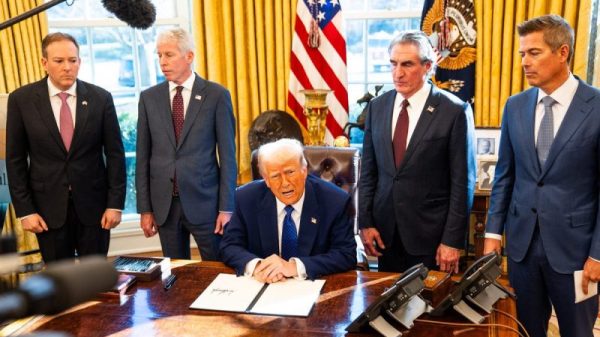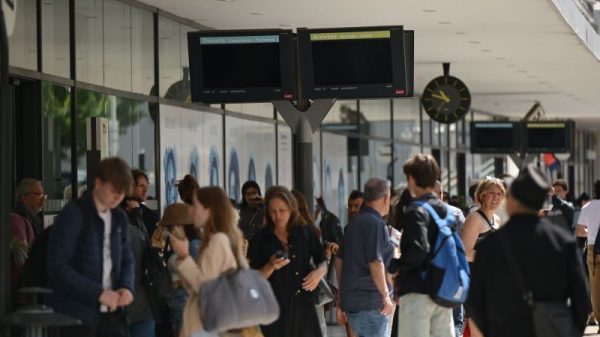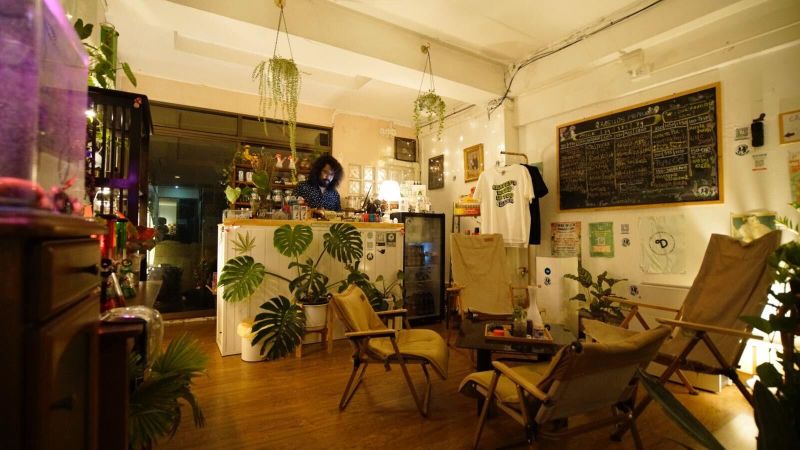Opening a cannabis dispensary wasn’t always top of the list of Wassaya Iemvijan’s ambitions. The former lawyer, from the Thai capital Bangkok, first turned to the plant as a form of “alternative care” to cope with stress and settle her mind.
“I struggled with depression for many years,” Iemvijan said. “It was weed that helped me… So when it was decriminalized, we decided to set up a shop.”
On June 9, 2022, – two days after Thailand became the first country in Southeast Asia to decriminalize cannabis. Iemvijan and her husband Nitikrist Attakrist, also a lawyer, registered for a licence to grow and sell the plant.
“We were under a lot of stress as lawyers,” Attakrist said. “We didn’t plan on setting up a cannabis shop but we did and we wanted to teach people how to get the best benefits as well as the responsibilities that come along with it.”
Over the past 12 months Thailand has seen a green rush, with cannabis dispensaries cropping up in cities and towns across the kingdom.
Access to cannabis has long been easy in the country but it was risky.
Northernmost Thailand sits on the notorious Golden Triangle, one of the world’s most successful drug producing regions. But pot was still illegal, with lengthy jail sentences for those who were caught.
But that changed after cannabis was fully decriminalized. Visitors to Bangkok’s famed Khao San Road, or the bougie districts of Thonglor, were just as likely to encounter the waft of weed as they were spicy smells of street food. Cities like Chiang Mai even organized weed festivals.
But all that could soon be about to change.
Little more than a year after cannabis decriminalization, following an election that saw a more conservative coalition government come into power, there are signs Thailand’s laws on cannabis could be rewritten once again.
Newly appointed Thai Prime Minister Srettha Thavisin told Bloomberg TV in a recent interview that his government would seek to “rectify” the law on cannabis within the next six months, suggesting that the plant would remain legal only for medical use.
“The problem of drugs has been widespread lately, especially in the northeastern and northern parts of Thailand. And we don’t need another issue added on top of that,” Thavisin said.
“The law will need to be rewritten. It needs to be rectified. We can have that regulated for medical use only,” he added.
It remains unclear exactly where that will leave Iemvijan and Attakrist, as well as countless other cannabis-themed businesses, weed cafes and dispensaries that have opened over the past year.
But things don’t look good.
“Cannabis has helped many Thais – from farmers to small business owners and workers behind the counter, and any U-turn policy will be the worst decision ever,” noted Attakrist.
“We are strongly against any legislation that could hurt the industry.”
What is the law?
Medical marijuana has been legal in Thailand since 2018, but decriminalization in 2022 took things a step further, making it no longer a crime to grow and trade marijuana and hemp products, or to use any parts of the plant to treat illnesses.
Under the 2022 change, cafes and restaurants were allowed to serve cannabis-infused food and drinks – but only if the products contained less than 0.2% tetrahydrocannabinol (THC), the plant’s main psychoactive compound.
Smoking weed in public spaces however, remains illegal and harsh penalties remain in place under Thailand’s Public Health Act, including up to three months in jail and an $800 fine for those caught doing so.
In reality, much of weed that is on sale is much stronger than 0.2% THC in a country where adherence to regulations and the letter of the law can be patchy.
Observers say there has been a noticeable increase in public consumption of the plant, encouraged by the ambiguities in the law.
“There hasn’t been a clear divide between smoking medical marijuana and getting high which has contributed to the rise in recreational smoking,” said Ley Singdam, the owner of a weed shop on the popular tourist island of Phuket.
However, Ley, like many business owners, believes the genie is already out of the bottle.
“The government is wrong if it thinks changing the drug act will stop people from ‘using,’” Ley said.
Businesses to take a hit
But while a crackdown on recreational use, which the government says it is planning, might not stop people from using cannabis, it is still very likely to hit small businesses hard, said Attakrist.
He believes it is ultimately the Thai government that is to blame for the current predicament. Most cannabis dispensaries like his he says, have been responsible and diligent from the start in checking buyers’ IDs and educating customers about cannabis rules.
“Cannabis has fewer negative effects as compared to alcohol and cigarettes but we still make it a point to remind customers about official rules in Thailand,” Attakrist said. “The government should have been better prepared from the start. They were sloppy.”
“They created this legal vacuum and right now they are trying to push the burden to the business owners and cannabis communities.”
“The industry has supported and created a lot of jobs for Thais especially in rural areas,” said Bangkok-based cannabis entrepreneur Kitty Chopaka, adding that she knew of “many parents who were able to send their children to better schools.”
“At the end of the day, the people have to have a say in this. I don’t think any other law in Thailand’s history is as big as this,” Chopaka added.
“We’re talking about an industry that is both medical and recreational, one rooted in Thai tradition and culture that affects livelihoods and will greatly affect the future.”
Michael Zaytsev, a New York-based cannabis business consultant and academic director at LIM College’s cannabis bachelor’s degree program, said that “prioritizing medical marijuana while outlawing adult use was a common starting point for governments, but it would restrict the potential growth of the industry.
“Thousands of cafes, stores, and other cannabis businesses have sprouted and hundreds of millions of dollars are being spent by tourists in a short amount of time,” Zaytsev said.
“Regulatory risk can pose significant and even existential threats to cannabis industries and navigating this complex, high risk and high reward industry is not easy,” he said.
“The challenge is to find a balance between regulation and support.”
A step back?
Thailand is an outlier in Asia, where most countries have strict drug laws. Some countries like Singapore and Indonesia even carry out death sentences against those convicted of trafficking, possession or consumption.
Until recently, harsh penalties were the case in Thailand too, noted Gloria Lai, regional Asia director of the International Drug Policy Consortium, who believes that restricting cannabis to medical purposes only will do more harm than good.
Zaytsev of LIM college added: “Prohibition simply does not work.”
“I sincerely hope Thailand does not go in the direction of Singapore for example, where people are executed for trafficking cannabis… a relatively safe plant that is consumed all over the world by people of all ages and backgrounds,” he said.
How Srettha Thavisin and his coalition government plan to go about changing the law hasn’t been made clear.
While his Pheu Thai party had vowed to roll back the 2022 legislation as part of its campaigning ahead of the general election, it now finds itself in a coalition with the Bhumjaithai Party, led by health minister Anutin Charnvirakul who actively lobbied for decriminalization.
The party has been against reclassifying cannabis as a drug. It has however, vowed to seek tighter monitoring of the industry.
But experts said pushing cannabis businesses back underground, making it harder to police, would likely result in more people getting into trouble with the law – as well as returning the trade from tax-paying businesses to the kind of organized crime cartels that flood Thailand and neighboring countries with huge amounts of methamphetamine and other illegal drugs.
“If criminal penalties like prison sentences are re-introduced… it could lead to people being arrested and forcefully tested for drugs and given criminal records again,” Lai said.
“The Thai government should instead be gathering and presenting data so that decisions made are based on evidence.”
For now, despite the uncertainty, business has been good, Iemvijan said.
The debate comes just as the quality of domestically produced cannabis in the country was improving, she added.
“The quality of Thai cannabis has gotten better and better. It is much cleaner and safer now than in the past,” Iemvijan said.
“The situation in Thailand is complicated… but most small businesses like ours are not opposed to new rules if they are within reasonable frameworks and easy to comply with,” she added.







